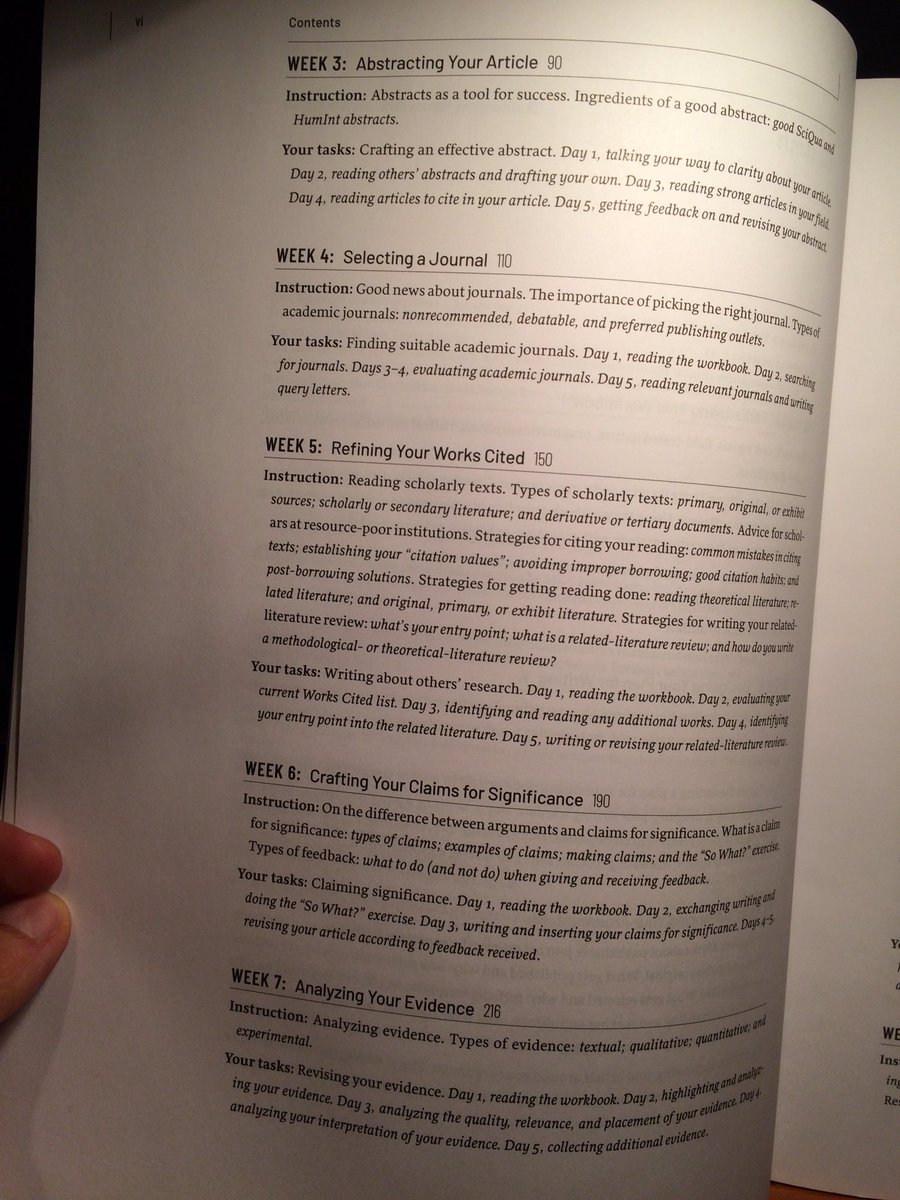
This is the second edition of Dr. @WendyLBelcher ‘s globally famous “Writing Your Journal Article in Twelve Weeks”.
My students and anybody who takes my writing workshops always let a “OH WOW” when I tell them Dr. Belcher is a good friend. Disclosures: I peer reviewed this book
My students and anybody who takes my writing workshops always let a “OH WOW” when I tell them Dr. Belcher is a good friend. Disclosures: I peer reviewed this book

What does "I peer reviewed this book" mean, exactly?
This means that @UChicagoPress approached me for my expertise in academic writing and asked me if I could review Dr. Belcher's draft of the second edition and suggest improvements and changes to make.
I mention this because:
This means that @UChicagoPress approached me for my expertise in academic writing and asked me if I could review Dr. Belcher's draft of the second edition and suggest improvements and changes to make.
I mention this because:
I LOVE THIS BOOK.
I loved it before. I bought a copy before I even struck a friendship with Dr. @WendyLBelcher raulpacheco.org/2018/01/writin…
I loved it even before @UChicagoPress approached me to peer review the draft of the second edition.
I loved it when @FlacsoMx published it.
I loved it before. I bought a copy before I even struck a friendship with Dr. @WendyLBelcher raulpacheco.org/2018/01/writin…
I loved it even before @UChicagoPress approached me to peer review the draft of the second edition.
I loved it when @FlacsoMx published it.
My institution, @FlacsoMx has published the Spanish language version of the FIRST edition (I'm going to speak to the editorial committee at FLACSO Mexico to see if we could have it translated and published in Spanish).
There are differences between the first and second editions
There are differences between the first and second editions
The first edition assumed you had a draft of a paper and needed help revising it.
The second edition takes through the process of actually doing the first draft, what Anne Lamott calls The Shitty First Draft.
The second edition improves substantially over the first one.



The second edition takes through the process of actually doing the first draft, what Anne Lamott calls The Shitty First Draft.
The second edition improves substantially over the first one.




I was pleased to see my name alongside several other writing greats such as @tanyaboza @dr_rdr Patricia Morse and Jane Hindman.
After all, my job, whether with my students or with my colleagues, is to help them hone their craft and bring out the best of their scholarship.
After all, my job, whether with my students or with my colleagues, is to help them hone their craft and bring out the best of their scholarship.

The correct usage of #12WeeksArticle is as a workbook.
That means, the book has an integrated workbook within it and you should use it to accompany you through the process.
One of my goals (possibly for the Spring of 2021) is to teach an online writing course with Dr. Belcher
That means, the book has an integrated workbook within it and you should use it to accompany you through the process.
One of my goals (possibly for the Spring of 2021) is to teach an online writing course with Dr. Belcher
And for those interested in the Spanish language of the book, my institution (@FlacsoMx) published it flacso.edu.mx/publicaciones/…
• • •
Missing some Tweet in this thread? You can try to
force a refresh


